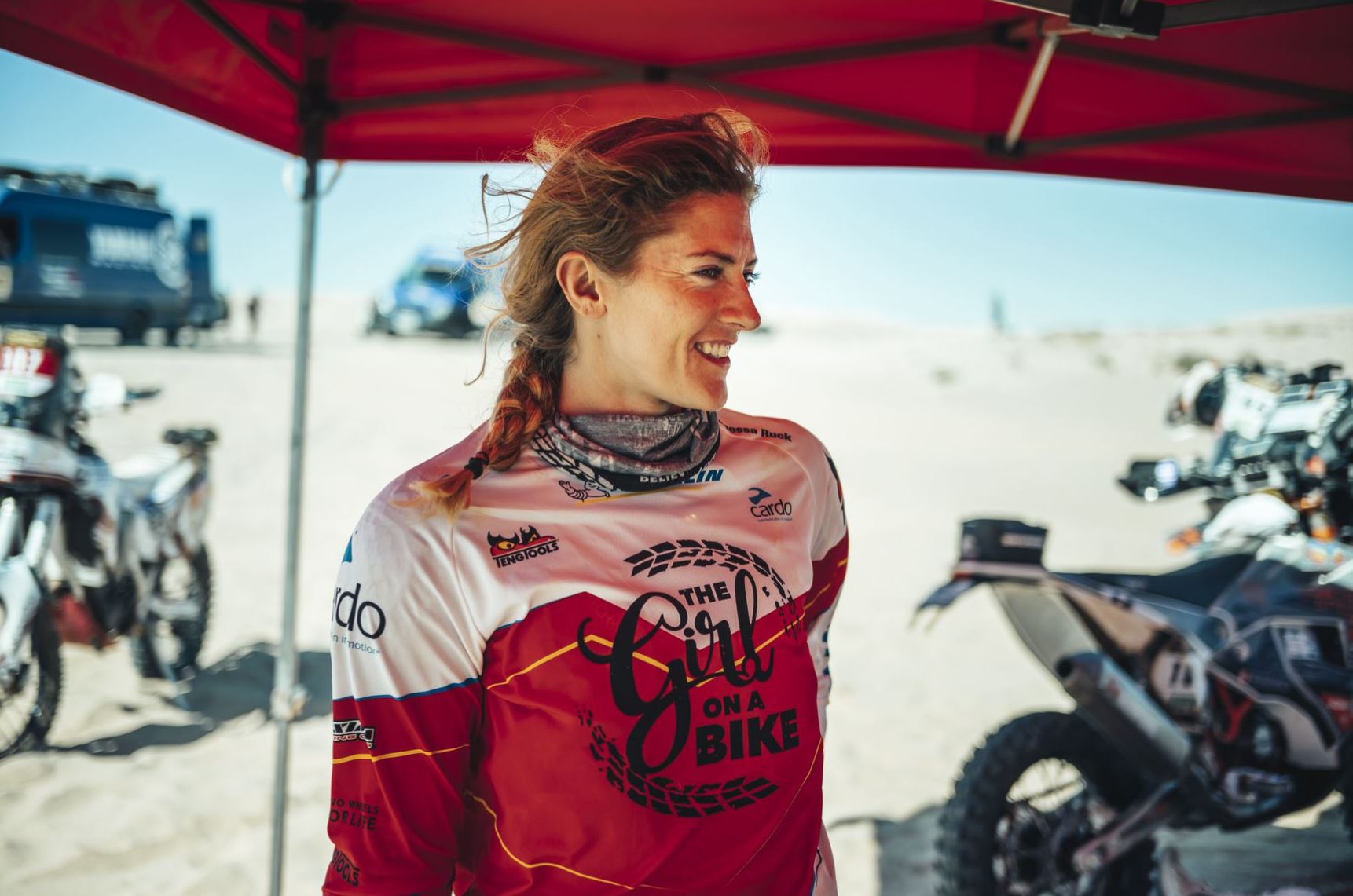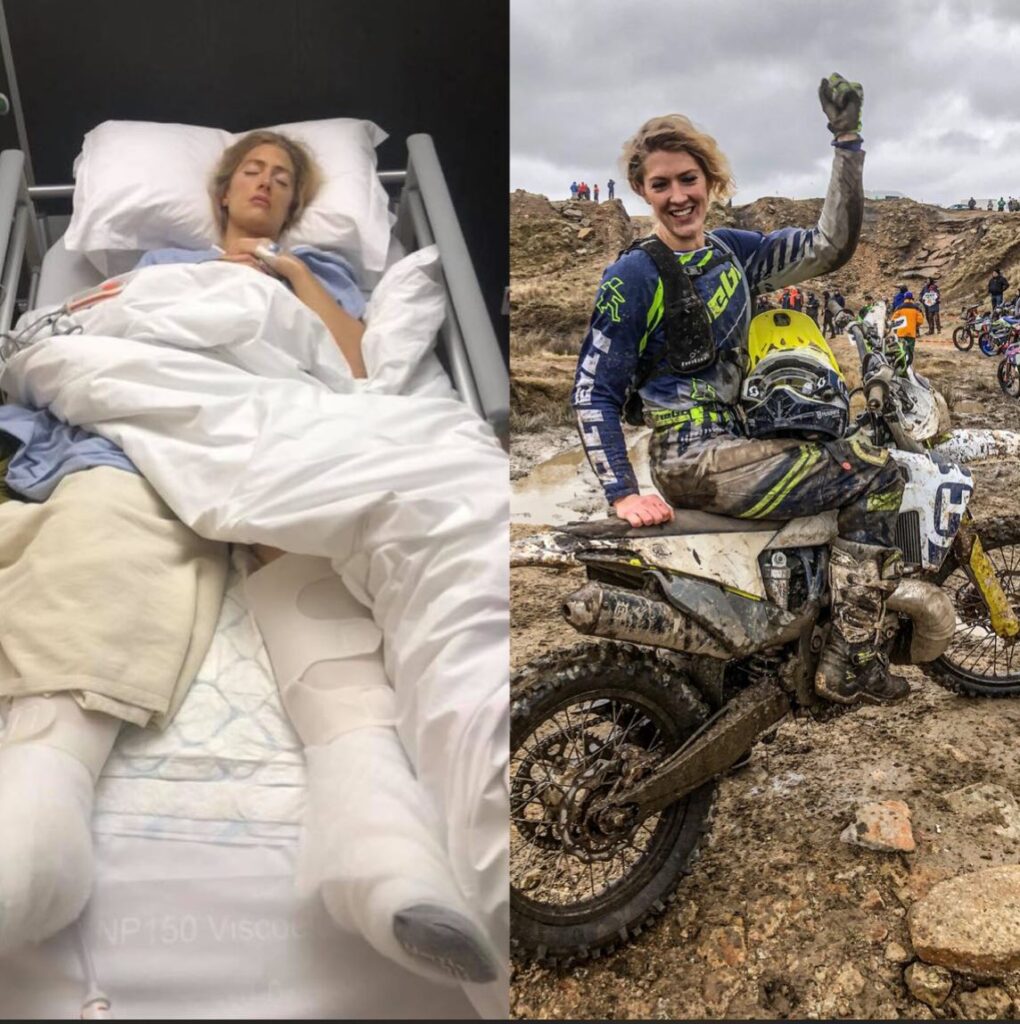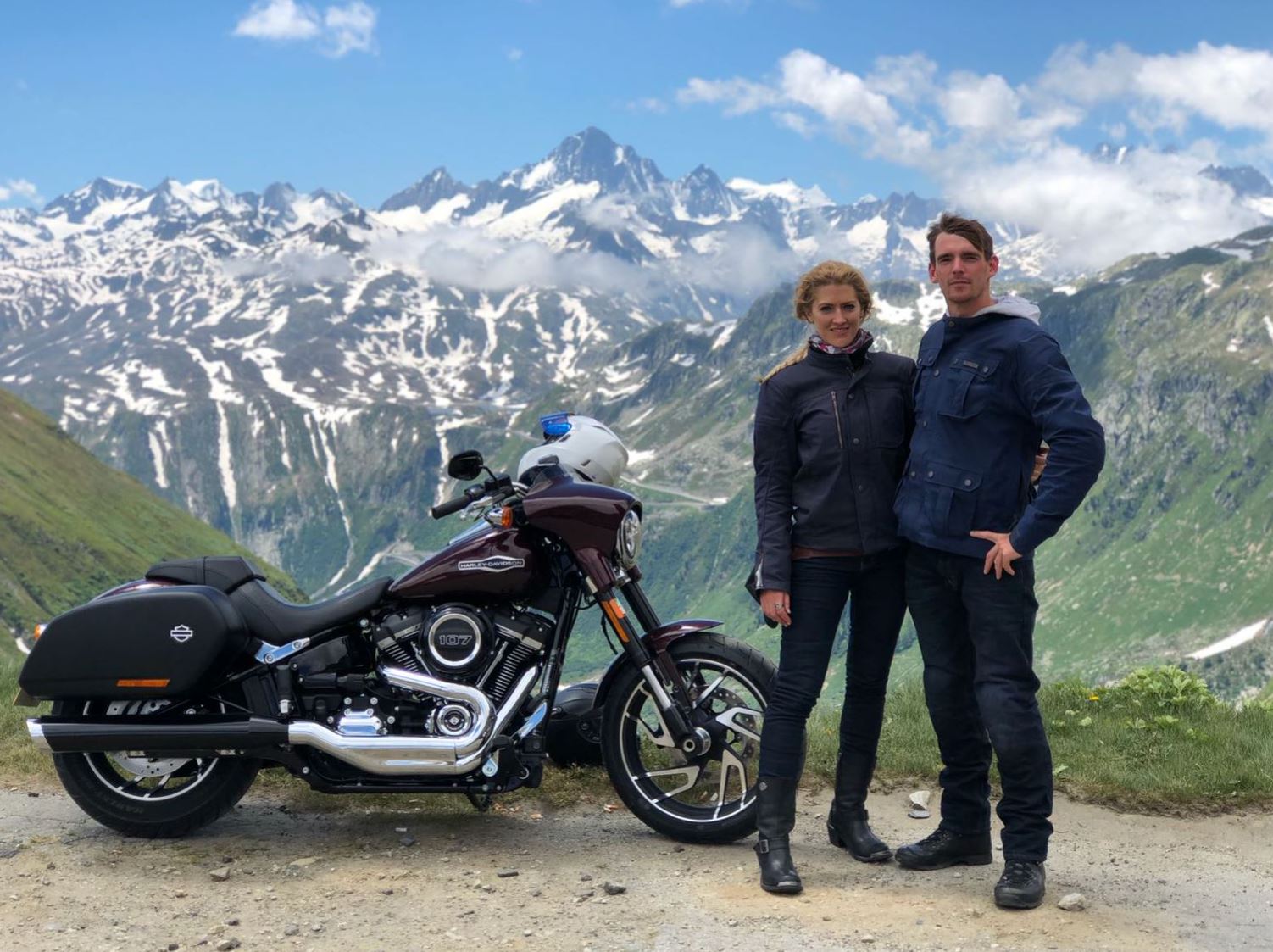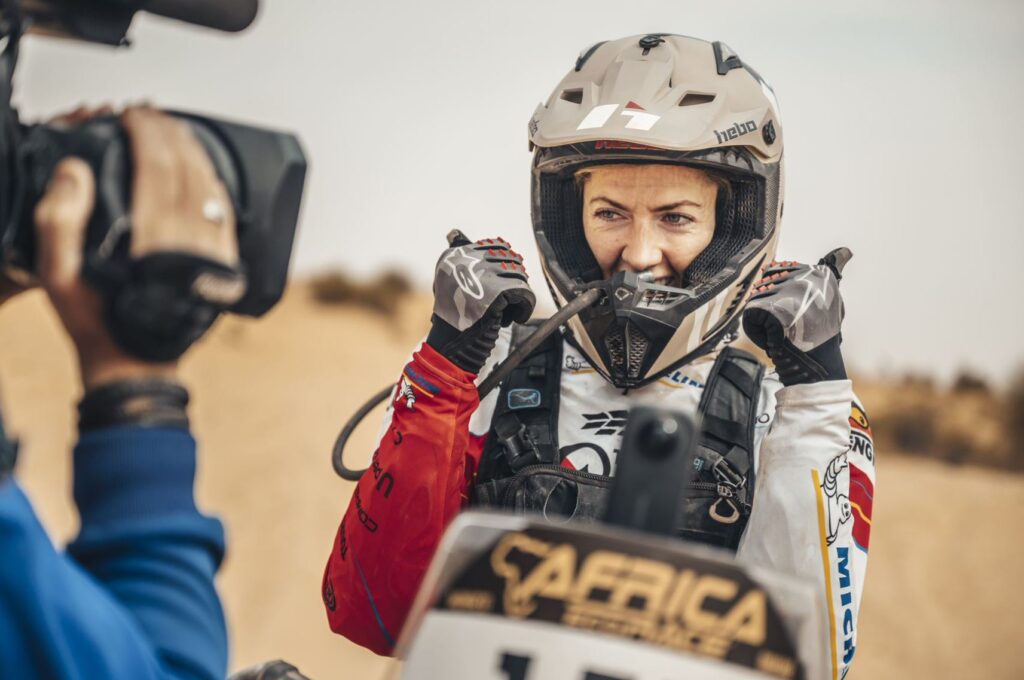Vanessa Ruck – A Journey of Hope and Resilience

Road traffic accidents (RTAs) have a way of turning life upside down in an instant. For me, it was a day that started out as ordinary but ended up defining my future in ways I could never have imagined. While the physical scars from my accident are visible, the emotional and mental journey to recovery has been equally transformative, and one I would say is far more challenging. The mental health side is the part I wish we would all talk about more!
My story began in 2014 when a car running a red light hit me while I was cycling. The accident left me with life-altering injuries, including chronic pain and a long road of seven surgeries and years of rehabilitation. While the journey was incredibly difficult, it also brought new opportunities and achievements. From discovering a passion for motorcycling—a pursuit that would become a cornerstone of my recovery—to competing in the gruelling Africa Eco Race, my life transformed in unexpected ways. These milestones remind me that even in the face of adversity, growth and resilience are possible.

Acknowledging the Challenges
In the weeks and months following my accident, I was overwhelmed by a rollercoaster of emotions: fear, anger, sadness, and even disbelief. Adjusting to my “new normal” was incredibly hard. I faced challenges that ranged from managing chronic pain and surgeries to grieving the life I once knew.
In those early days, it was easy to feel isolated, like no one truly understood what I was going through. But if there’s one thing I’ve learned, it’s that it’s okay to feel this way. Recovery—both physical and emotional—takes time, and allowing yourself space to grieve and process is part of the healing process.

Turning Pain into Purpose
As time went on, I began to shift my focus. I realised that while I couldn’t change what had happened, I could change how I responded to it. Setting small, achievable goals became a cornerstone of my journey. Whether it was completing physiotherapy exercises or simply getting out of bed on tough days, each accomplishment built my resilience.
A big turning point came when I discovered a new passion for adventure, which became a transformative part of my life after the accident. I discovered motorcycles for the first time, finding that riding them not only brought joy but also became a vital part of my mental health journey. Getting on the bike wasn’t just about reclaiming a hobby—it was about proving to myself that I could overcome fear and rebuild my confidence.
The Power of Support
I couldn’t have done this alone. My support system—my family, friends, and even the biking community—played a pivotal role in my recovery. Whether it was a listening ear, words of encouragement, or practical help, these acts of kindness reminded me that I wasn’t alone. Seeking professional help, such as counselling, also provided me with tools to process my emotions and build mental strength.

Practical Steps for Staying Hopeful
During the darkest times, I leaned on a few strategies to keep moving forward:
- Mindfulness: Mindfulness is now a big part of my life. When my hip is hurting particularly badly, most of the time I can cope with it, but there are moments when I get angry and can quickly spiral down into a toxic, negative mental state. Through mindfulness, I’ve learned to be conscious of my thought processes and recognise early triggers, allowing me to take control of both my conscious and subconscious thoughts.
- Focusing on Small Wins: Celebrating even the tiniest victories kept me motivated. Goal setting became an essential part of my recovery. From small achievements like putting on my own socks or making it downstairs to sit at the table for dinner, to bigger milestones like walking around the garden on crutches, every goal gave me something to focus on and work towards. These small wins built my confidence and reminded me that progress, no matter how small, is still progress.
- Connecting with Others: Talking to people who had experienced similar challenges made me feel understood and inspired. I’ve also learned the importance of asking for help and being okay with vulnerability. You can’t do it alone, and it’s important to let loved ones in. Whether it’s a family member helping with daily tasks or a friend offering a listening ear, accepting support can make a world of difference. Your loved ones will want to help you—let them.
- Finding Joy in the Present: Simple pleasures—like a sunny day or a good cup of coffee—reminded me of life’s beauty. Gratitude also became an essential practice. While I couldn’t have or do everything I wanted, I learned to focus on the things I still had to be grateful for. Whether it was a kind word from a loved one, the sight of flowers blooming in the garden, or even the small victory of completing a daily goal, these moments lifted my day. Actively seeking out these little joys gave me a sense of uplift and perspective, even during the hardest times.
- Coping with Pain: Living with chronic pain is an ongoing battle, but I’ve developed strategies to manage it. For me, it’s about breaking the pain cycle by staying active within my limits, using mindfulness techniques to shift focus from the pain, and setting achievable goals that help me stay motivated. Accepting that some days will be harder than others has also been key, as has learning to ask for help when needed.

A Message of Hope
If you’ve recently been involved in an RTA, I want you to know this:
Recovery
When people say ‘recovery’, you typically think of returning to how you were before the accident. But there is no going back. You do not merely recover; you reinvent yourself. You learn so much as you fight through; it’s an irreversible journey. While my journey over the past years has been brutal, I feel somehow lucky. I have friends now I would never have met, I have discovered a passion for motorcycling that I would never have explored, I have realised the importance of a work-life balance, I’ve become even closer to my husband and soulmate, and I have a fire in my soul only this type of recovery could light.
You’re not alone, and things can get better. The road to recovery may be long and winding, but each step forward is a testament to your strength. Allow yourself to grieve, reach out for support, and take one day at a time.
Your journey won’t look exactly like mine, and that’s okay. What matters is that you keep moving forward—even if some days, that simply means holding on. Remember, you are more resilient than you think. But every day, do something towards that irreversible journey to a new you.

Follow Vanessa Ruck Below!
If you’re interested to learn more about Vanessa’s journey and what she’s getting up to in her latest adventures, you can check out her social media below!
https://www.instagram.com/thegirlonabike/
https://www.facebook.com/TheGirlOnABike
https://www.youtube.com/c/TheGirlOnABike
https://www.tiktok.com/@thegirlonabike
www.threads.net/@thegirlonabike